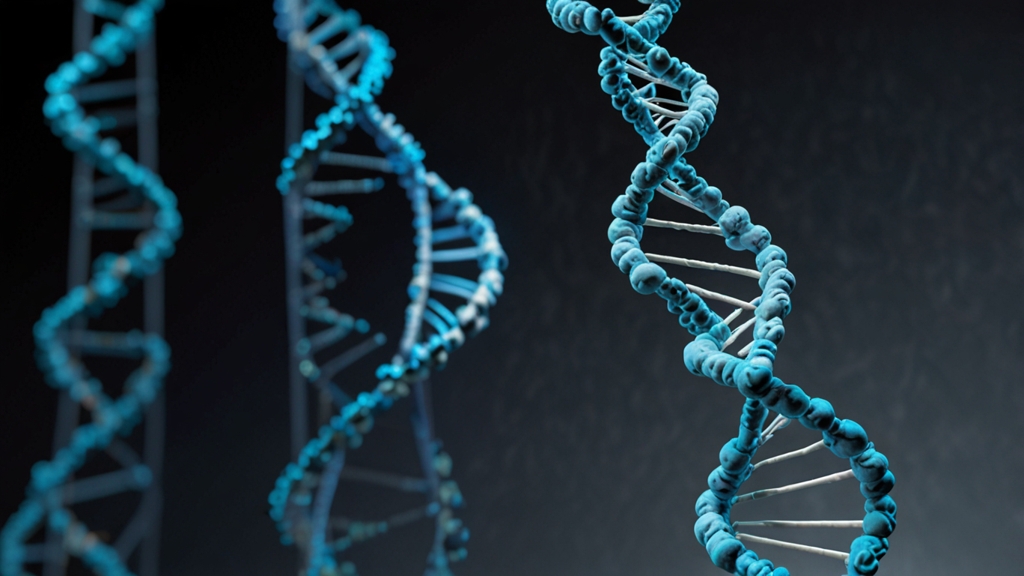Unveiling the Secrets of DNA: What Your Genes Really Say About You
The double helix of DNA, discovered by Watson and Crick in 1953, revolutionized our understanding of genetic inheritance. Today, in an era of advanced genomics, the secrets locked within this intricate molecule are more accessible than ever. But what do our genes really reveal about us?
The Blueprint of Life
At its core, DNA (deoxyribonucleic acid) is a long molecule that contains our unique genetic code. Think of it as a blueprint for building and maintaining the human body. Each person’s DNA is composed of sequences of four chemical bases—adenine (A), thymine (T), cytosine (C), and guanine (G)—arranged in specific sequences. These sequences form genes, the instructions for producing proteins that perform countless functions in our bodies.
Your Genetic Makeup: Beyond Physical Traits
When most people think about DNA, attributes like eye color, hair type, and height often come to mind. However, your genetic code holds much more information than these visible traits. For instance, certain gene variations can impact how we metabolize different foods, our susceptibility to specific diseases, and even our reactions to medications.
"Genomics is the study of genomes, which constitutes all aspects of an organism's DNA, including its interactions with environmental factors, lifestyle choices, and other biological mechanisms." - Dr. Jane Smith, Geneticist.
The Role of Epigenetics
One of the most fascinating areas of modern genetics is epigenetics, which studies changes in organisms caused by the modification of gene expression rather than alteration of the genetic code itself. These modifications can be influenced by a variety of factors including diet, stress, and exposure to toxins. In other words, while your DNA provides the script, epigenetics can change how that script is read.
For example, identical twins, who share the same DNA, can exhibit differences in health and behavior over their lifetimes due to epigenetic changes influenced by their unique environments and lifestyles. This adds a layer of complexity to the conventional understanding of genetic determinism.
Genetic Testing and Personal Insights
The advent of affordable genetic testing has opened doors to personal discovery for millions of people. Companies like 23andMe and AncestryDNA offer services that analyze your genetic information, providing insights into your ancestry, potential health risks, carrier status for hereditary diseases, and traits that might be unique to you.
"Understanding your genetic makeup can empower you to make informed decisions about your health and lifestyle," says Dr. John Doe, a leading researcher in personalized medicine.
However, while genetic tests can offer valuable insights, they also come with limitations and ethical considerations. Genetic information can be misinterpreted, and there are concerns about privacy and data security. It’s essential to approach the results with a balanced understanding, often in consultation with a healthcare professional.
Future Prospects
Exciting advancements are being made in the field of genetics, such as CRISPR-Cas9, a revolutionary gene-editing technology. This tool allows scientists to make precise edits to the DNA sequence, potentially correcting genetic defects or eliminating hereditary diseases. The future of genetic research holds promise for groundbreaking treatments and preventive strategies, making personalized medicine more accessible and effective.
As we continue to decode the mysteries within our DNA, one thing becomes clear: our genes provide a wealth of information that, when combined with environmental and lifestyle factors, make each of us uniquely human. Understanding what our genes say about us not only satiates our curiosity but also empowers us to lead healthier, more informed lives.
Conclusion
In summary, your DNA is a complex and intricate blueprint that goes beyond determining your physical appearance. It influences a wide array of characteristics, from health predispositions to how your body interacts with the environment. While genetic testing can offer remarkable personal insights, it's vital to contextualize this information within the broader scope of lifestyle and environmental impacts, as well as ethical considerations. The future of genetics holds immense potential, promising innovations that could transform healthcare and our understanding of human biology.










